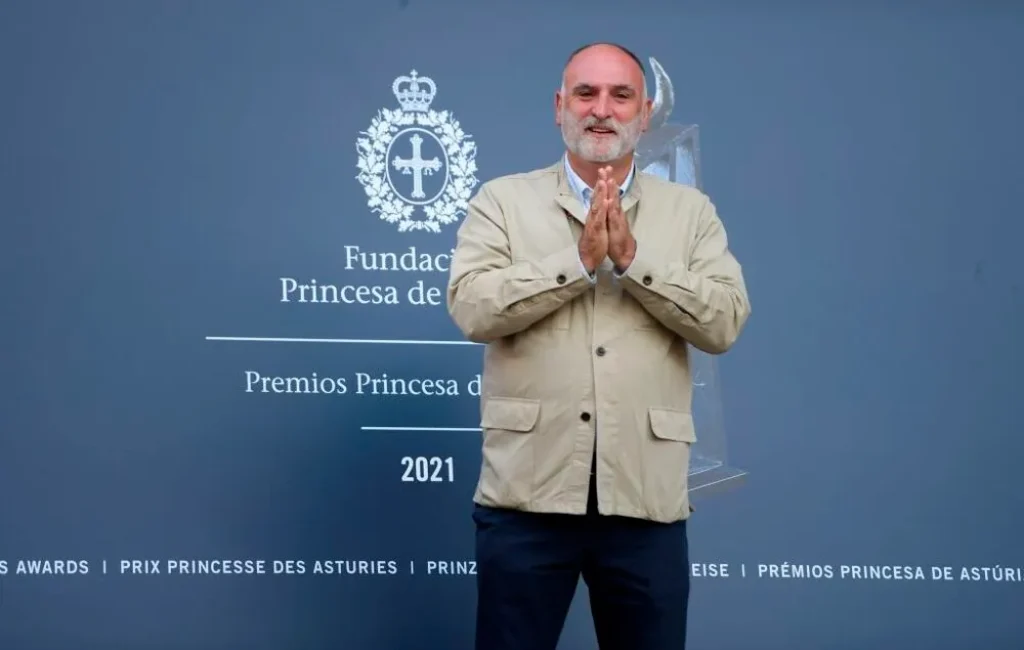“It may sound pretentious, but World Central Kitchen is bigger than the United Nations,” says its founder, the Spanish chef José Andrés, who argues his statement in an unprecedented “adaptation to circumstances in real-time” that allows them to feed citizens in need in the face of catastrophes of all kinds.
Trained in conflicts, natural disasters, and even pandemics, the success of this NGO lies in “creating a common awareness among people who like to feed people, such as cooks and producers”, explains who after several trips to Ukraine and Poland after the Russian invasion has just opened in a town near Madrid, Pozuelo de Alarcón, a café-restaurant to feed the Ukrainians who arrive in the capital.
It is followed by a team from Discovery Channel to capture the activity of World Central Kitchen (WCK) and its thousands of volunteers because, he recalls, “the gastronomy industry has not become empathetic from yesterday to today; since the beginning of humanity I was where there was a need.”
An NGO feeds on this which, says José Andrés, has started an “unstoppable” movement with which it even glimpses the success of the battle against hunger in the world.
“It sounds a little closer, although it is still very unlikely because with goodwill the world’s problems do not end; there has to be, but also very good policies, very good action, very good work by private industry in competition with NGOs, with individuals and social groups that often do not exist,” he asserts.
This Spaniard living in the United States says that he cannot keep track of the thousands of Ukrainians comforted by daily menus within the country or in their flight from the Russian invasion, since WCK is also in Poland, Slovakia, Hungary, Moldova, or Romania. His last performance, which he personally supervises, is in the vicinity of Madrid.
“It is intended for refugees, as support for the government’s reception policies while the paperwork is being completed; we can give up to 2,000 meals a day. We already did it with Afghans at different airports,” he explains.
In the war in Ukraine, they have been able to deploy large kitchens, where cauldrons with hot stews wait to feed and shelter those who get off trains and buses, but also to install delivery trucks or machines to make hundreds of sandwiches quickly in ” strategic points”.
That, he stresses, is what distinguishes an organization that does not give up, even though the bombardments “are heard nearby.”
But José Andrés -Princess of Asturias Award for Concord 2021 and whom many consider being a candidate for the Nobel Peace Prize- also has critical words against governments for not designing “a food policy” which, he believes, must be approached from a global and multidisciplinary because it affects health, international aid, immigration, the abandonment of rural areas and national security.
“We can build all the walls we want, but if there is a hungry mother she will jump over them. And are we going to end up shooting?” the same opportunities that I have given mine. Until the rich governments of the world see that, we will always have people knocking on the door. They don’t come to invade us, they come to eat.”
For this reason, it defends “real” investments that can benefit not only the most disadvantaged countries but also the rest of the planet. An example: “Make sub-Saharan Africa the great place of solar energy production; there should not be a desert without solar panels.”
This would avoid energy dependencies in a world in which, he defends, “food is the most important energy of humanity, not gas pipelines”, something that is already being verified with the paralysis of Ukraine, one of the great breadbaskets of Europe, for the war.
“If we believe that the products are expensive now, be careful what is going to happen,” he warns.
